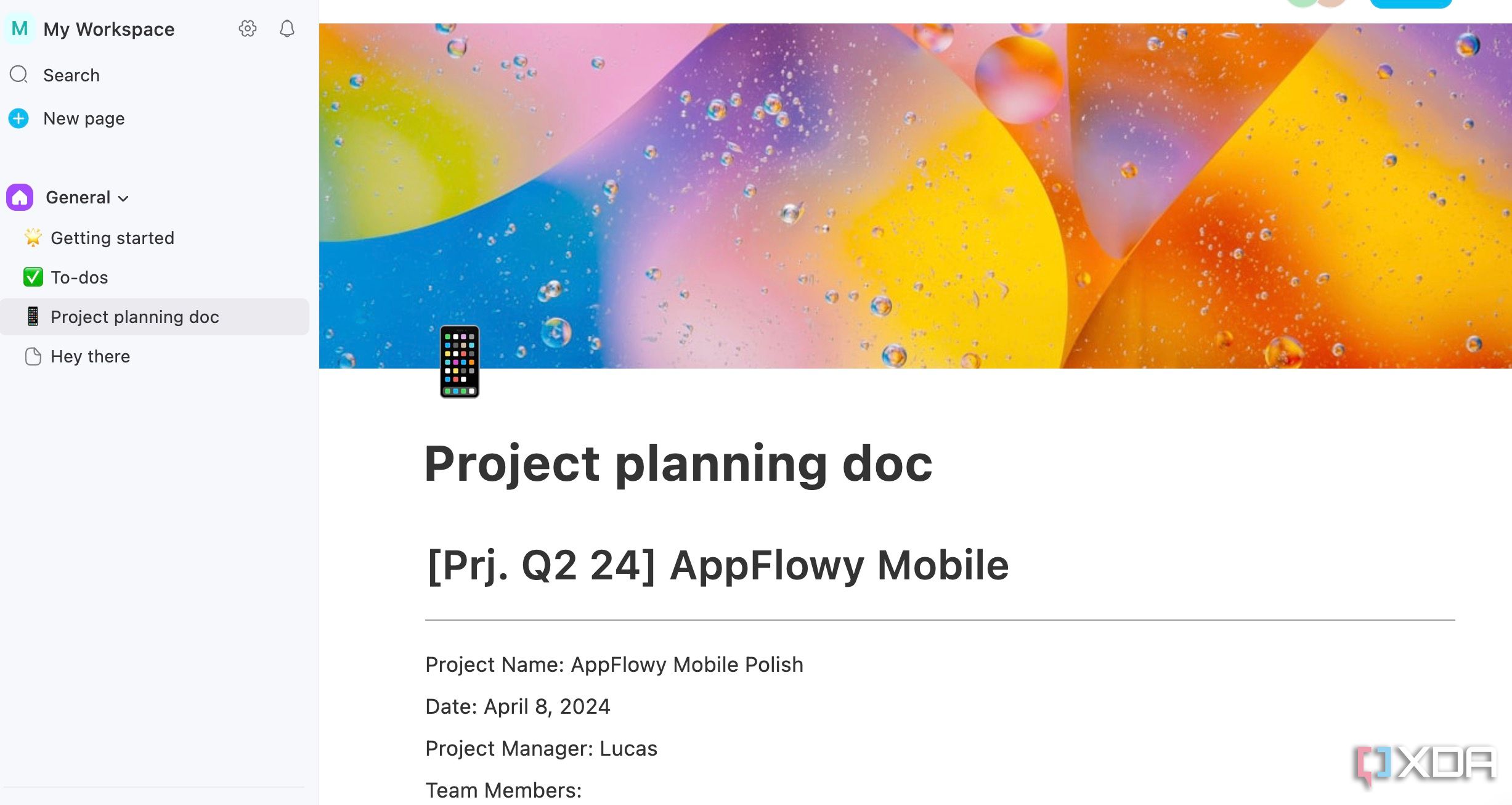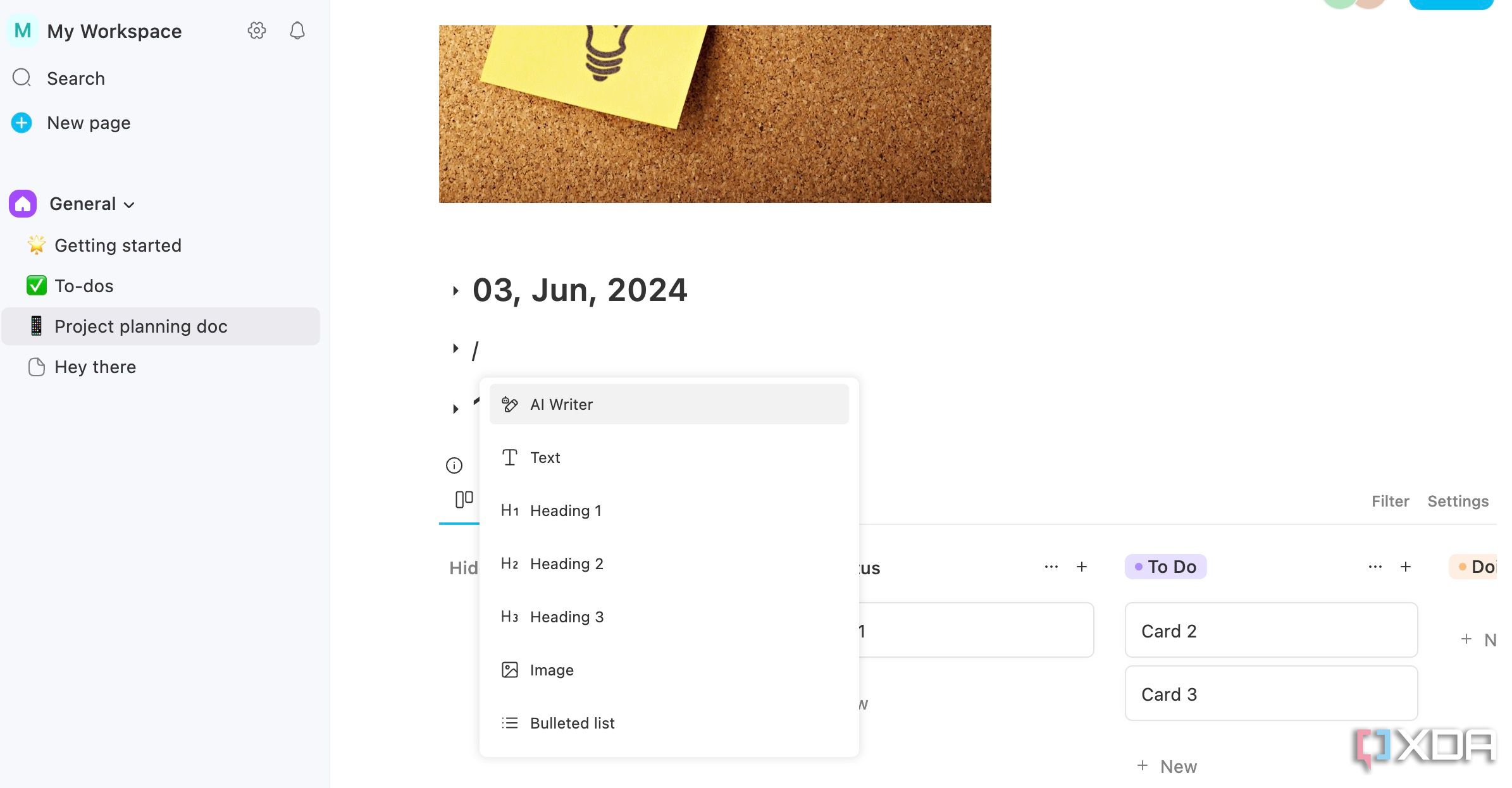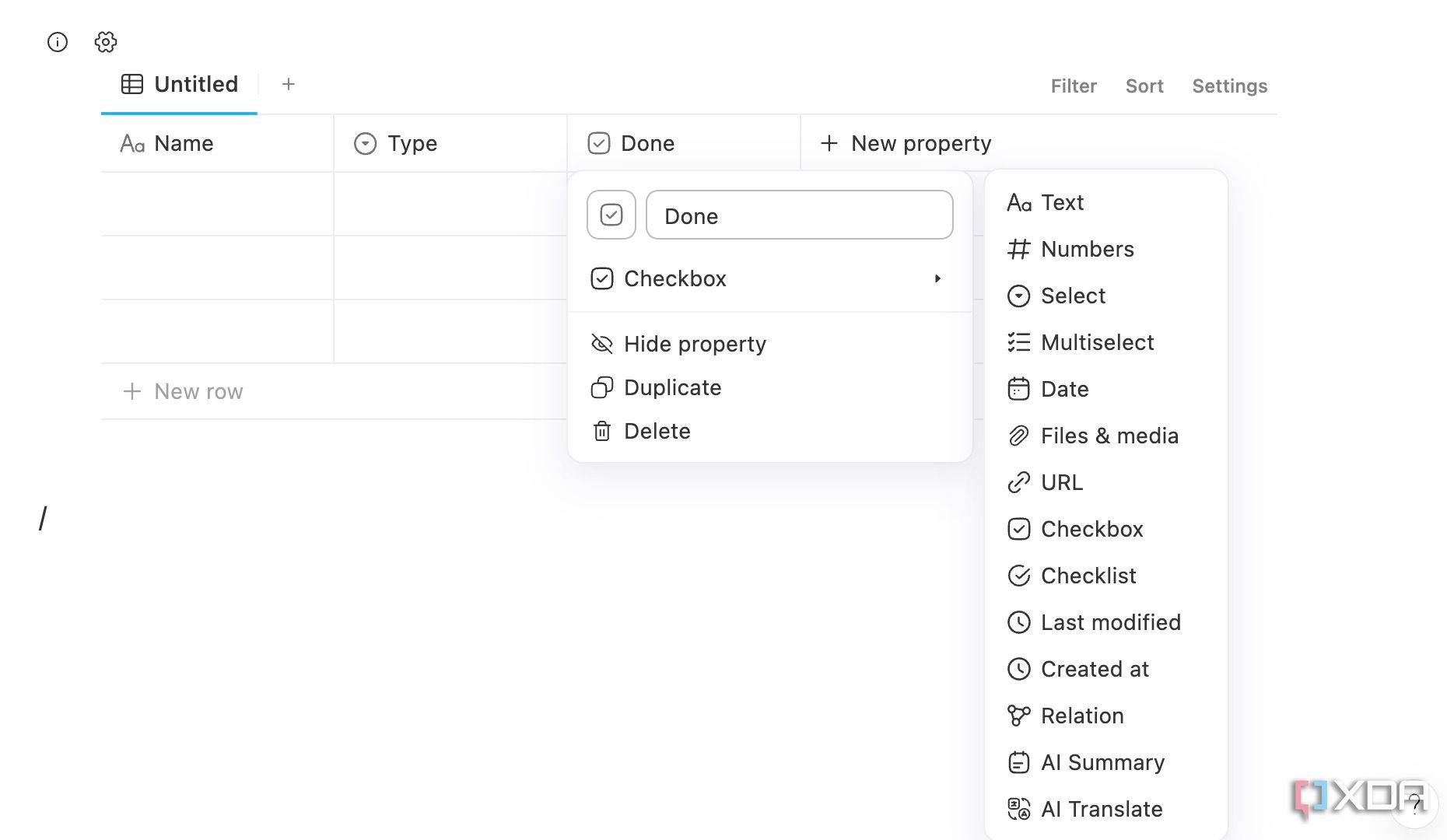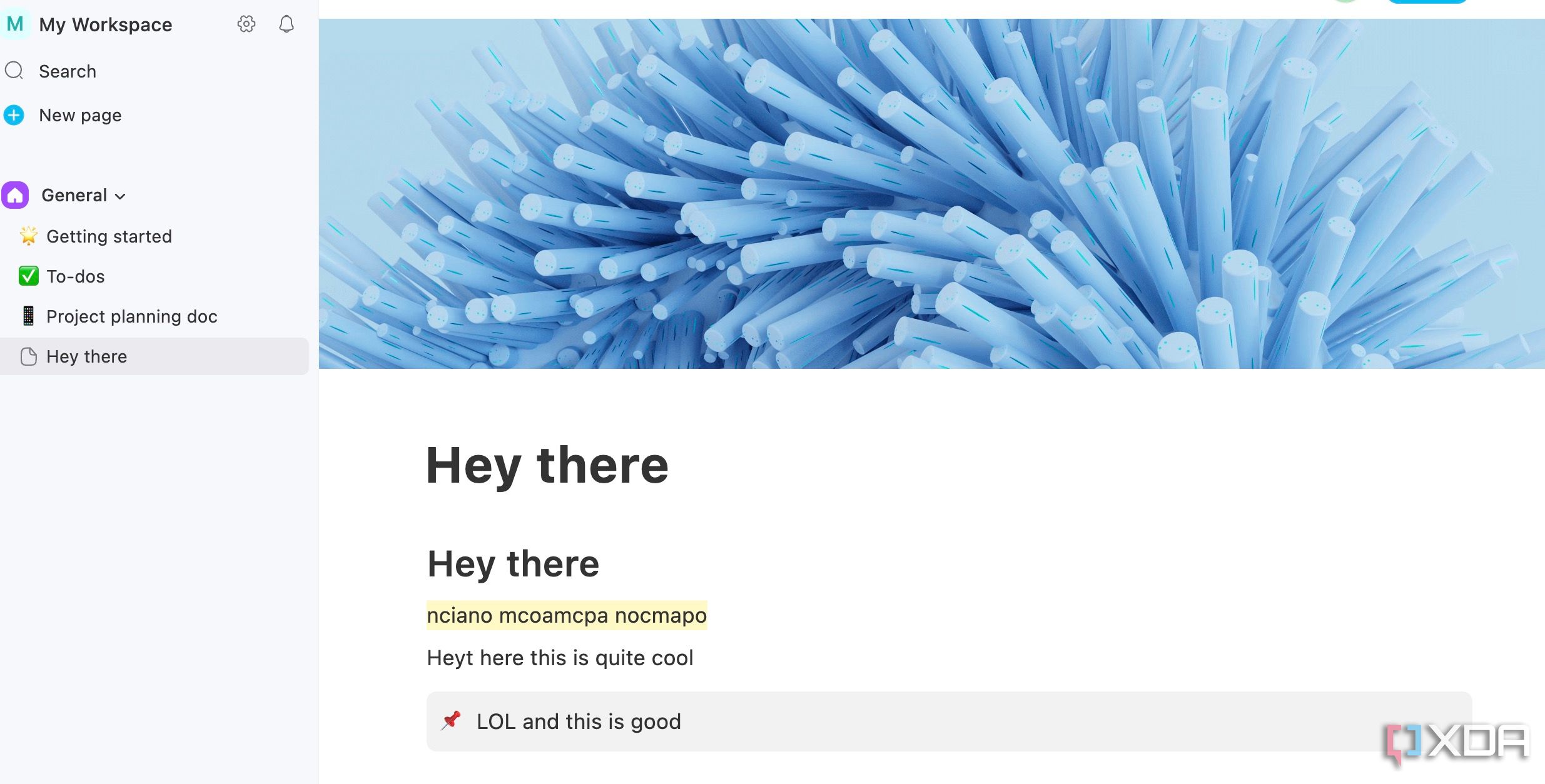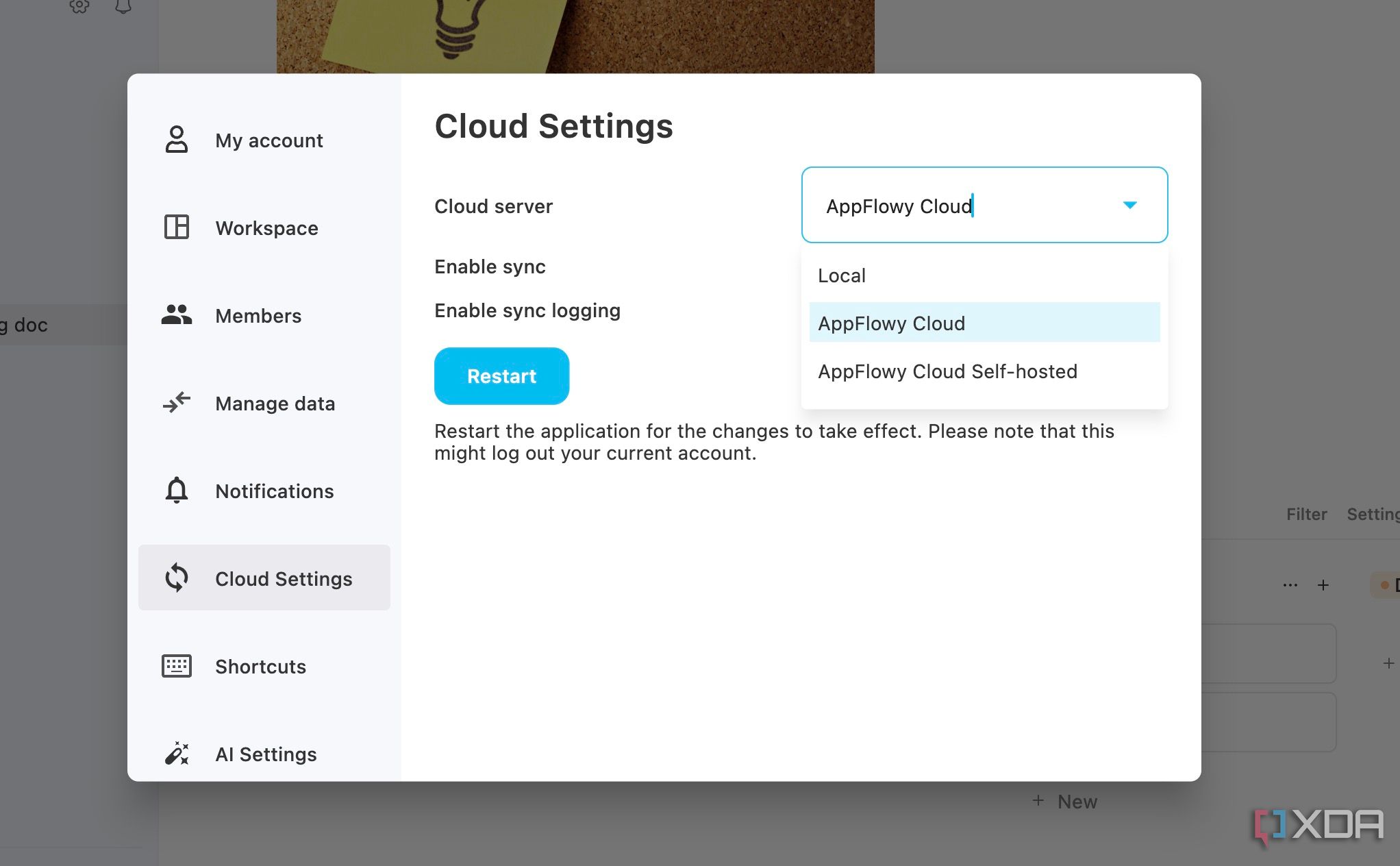My search for the ideal productivity tool has been extensive. Like many, I started my journey with Notion’s promise of an all-in-one workspace. However, after some time, Notion’s lackluster mobile apps and the complete absence of a reliable offline mode turned out to be dealbreakers. I tried dozens of alternatives as I wanted to pick a solution that looks and works similarly to Notion and adapts to my workflow.
And then I discovered AppFlowy. This open-source tool has consistently drawn me back, not only with its robust feature set but also with its commitment to user freedom and data ownership. It addresses the very issues that made Notion an ultimately frustrating experience for me. Let me share why, after countless trials, AppFlowy has become my go-to solution.

Related
I tried replacing OneNote with Notion as my main note-taking app and here is how it went
Can Notion replace OneNote for everyday notes? My findings
A cross-platform solution
Available on all your devices
My workflow isn’t limited to a single device. I use a Windows desktop for focused work sessions, a MacBook for on-the-go tasks, a Pixel 8 as a daily driver, and an iPhone 15 Pro Max for work purposes. That means cross-platform availability is an absolute necessity for me. Here is where AppFlowy doesn’t disappoint, as it has native apps on all the major platforms.
This is precisely why, in my search for the ideal Notion alternative, I had to pass on some otherwise compelling options like Craft and Bear Notes. Their absence on Android was a dealbreaker for me. AppFlowy seamlessly syncs all my workspaces on Windows, Mac, and even a Linux machine.
Works and feels similar to Notion
Doesn’t require a learning curve
What initially drew me to AppFlowy was its remarkable familiarity with Notion. The fundamental structure of creating a workspace and then filling it with individual pages is immediately recognizable. Just like Notion, I could start building out my PKM system without breaking a sweat.
This lack of a learning curve was a breath of fresh air, especially after my experiences with other Notion alternatives like Anytype and Capacities. While those tools offered innovative approaches, they also came with a significant investment of time to understand the PKM system. In comparison, AppFlowy didn’t try to reinvent the core concepts that make Notion powerful.
Solid project management
Manage your personal projects like a pro
Beyond note-taking and general organization, AppFlowy has proven to be a robust tool for managing projects. If you have used Notion’s Kanban boards before, you will feel right at home with AppFlowy. You can insert a Kanban board, add columns, and start filling it up with tasks. Like Notion and Trello, you can fill in the task details with relevant properties like assignees, due dates, priority levels, tags, and more.
AppFlowy integrates this project management functionality with its core strengths: the block editor and the infinite canvas. Unlike dedicated Kanban tools like Trello or more comprehensive platforms like Asana, where project details, meeting notes, and related information often live in separate documents or require navigating away from the board, AppFlowy keeps everything within the same flexible space.
Robust databases
Way better than other Notion alternatives
I was very close to replacing Obsidian with Notion. I absolutely loved its graph views, canvas, and Markdown approach. However, the lack of advanced databases turned out to be a dealbreaker for me. However, AppFlowy has covered the basics here. It doesn’t stop at creating simple tables.
I can create a dynamic and interconnected information hub tailored to my specific needs. The variety of column types available is impressive and feels very much in line with what makes Notion’s databases so versatile. I use it all the time to manage my freelance writing projects. I have created a database with relevant columns like project name, client, deadline, status, topics, word count, files, and created at.
Although it gets the job done, I would love to see more database types like Gallery, List, Timeline, and more in future updates.
Excellent free plan
Should be good enough for the most
Unlike several Notion alternatives, AppFlowy has an excellent free plan. It offers unlimited workspaces, pages, and blocks, up to 5GB of space (I mostly add links to OneDrive files to save space), real-time collaboration with up to two members, and more. It sufficient for my current usage.
Private and open-source
With self-hosting capabilities
One of the factors that kept pulling me back to AppFlowy is its fundamental nature as an open-source project. This means that anyone can inspect the AppFlowy code, contribute to its development, and understand exactly how it works behind the scenes.
Unlike Notion, where all my workspaces and information remain stored on company servers, AppFlowy offers the crucial option to save my data locally on my own machine. AppFlowy even provides the option for self-hosting. This means I have the freedom to store my entire workspace data on any server I choose – whether it’s a personal server in my home, a virtual private server I rent, or any other infrastructure I trust. I plan to explore it in the future.

Related
5 self-hosted dashboards that can change your life
Your personal command center
Finally free from Notion
Ultimately, my search for the perfect Notion alternative led me back to where I found the most flexibility and control: AppFlowy. After trying out Obsidian, Craft, Roam Research, Bear Notes, AFFiNE, and more, I have learned that the best tools are often those that adapt to you, not the other way around. If you, too, are searching for a tool that strikes the perfect balance between transparency and features, give AppFlowy a try.
If AppFlowy doesn’t work for you, check out other Notion alternatives with offline mode.



